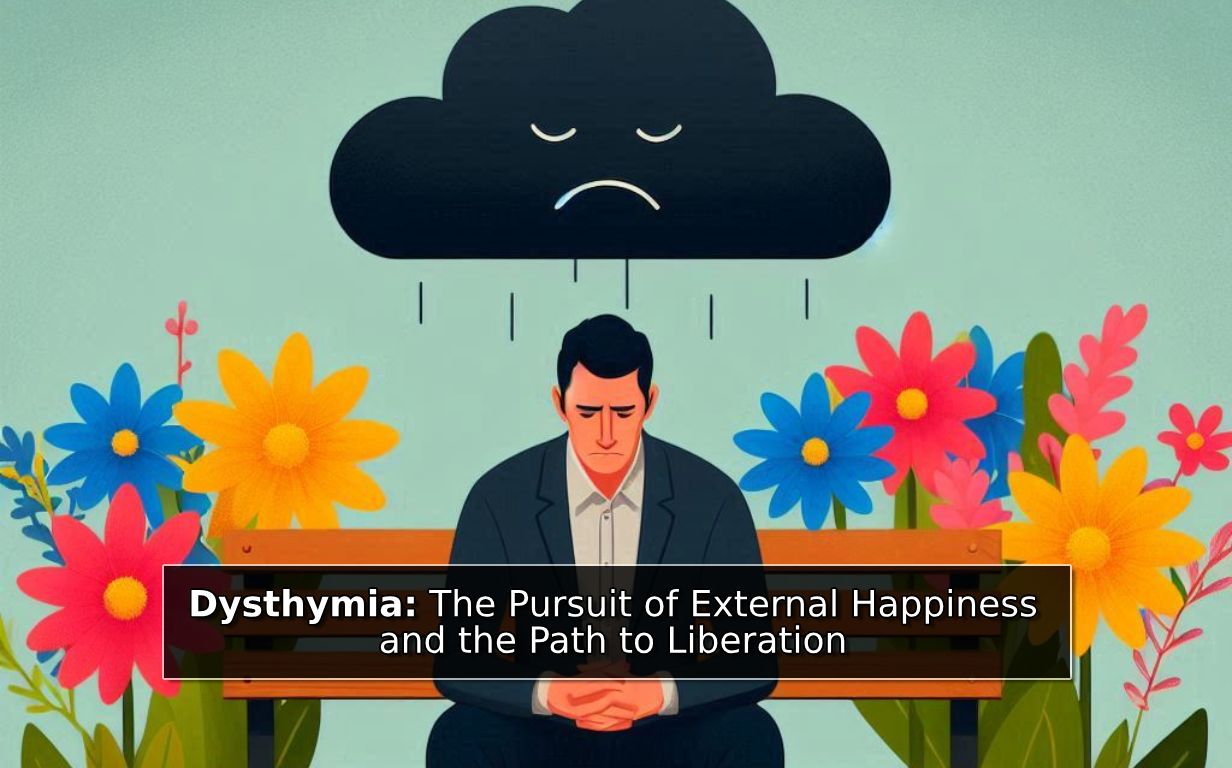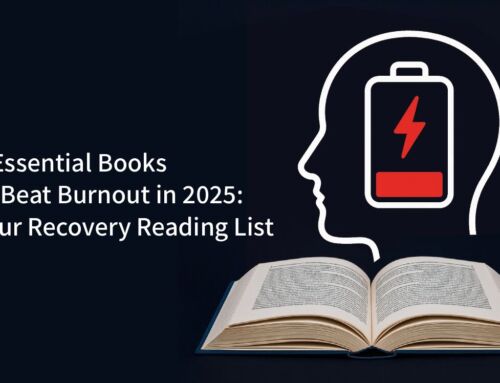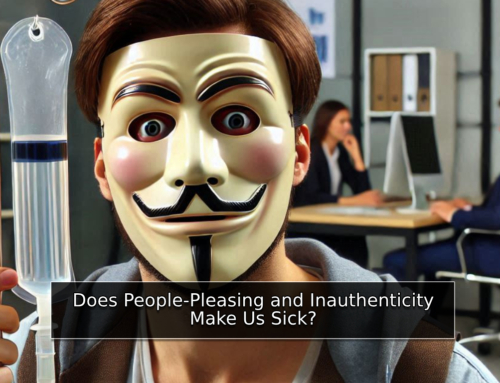Dysthymia: The Pursuit of External Happiness and the Path to Liberation
Dysthymia, also known as persistent depressive disorder, is a chronic mood disorder characterized by a persistently low mood that lasts for years. Unlike major depressive disorder, dysthymia is less intense but deeper, and can significantly impact quality of life. Individuals with dysthymia often experience feelings of sadness, hopelessness, worthlessness, difficulty concentrating, sleep and appetite disturbances, and a loss of interest in activities they once enjoyed.
Why do people with dysthymia seek happiness in external sources?
People with dysthymia tend to seek happiness outside of themselves, from other people, achievements, experiences, or possessions. This is because they feel empty inside and believe that happiness is an external state they need to chase. They may believe that if they only receive validation from others, achieve a certain goal, or acquire something specific, they will feel better.
The trap of "self-care" activities
Interestingly, even activities that seem to be for oneself, such as regular exercise or pursuing a hobby, can become a source of anxiety and frustration for people with dysthymia. This is because they tend to expect these activities to "fix" them or bring about an immediate change in their mood. As a result, they remain trapped in the pursuit of external happiness, this time through personal achievements. When exercise doesn't lead to immediate satisfaction or weight doesn't drop at the desired rate, feelings of failure and guilt may arise.
Why does this happen? It's because people with dysthymia are trying to use these activities as a way to prove to themselves and others that they are capable of being happy or "good enough". However, as long as their sense of self-worth is based on external achievements, happiness will remain elusive.
Why do they feel guilty when they do something for themselves?
Feelings of guilt often stem from strict upbringing or childhood experiences where they learned that their needs are less important than those of others. People with dysthymia may feel that they don't deserve to be happy or enjoy life. They may also fear the consequences of self-care, such as criticism or rejection.
Why do they please others most of the time?
People-pleasing is a survival mechanism aimed at avoiding rejection or criticism. Individuals with dysthymia may feel that if they please others, they will be loved and accepted. However, people-pleasing often leads to feelings of frustration, anger, and resentment, as they suppress their own needs and desires.
Past experiences and their impact
Childhood experiences, such as emotional neglect, abuse, disappointment, or rejection, can contribute to the development of dysthymia. Children who learn that their emotions are unimportant or that they are unworthy of love may develop patterns of negative thinking and low self-esteem.
The connection between the perception of external happiness and treatment
Medication or psychotherapy can help reduce the symptoms of dysthymia, but they will not address the root of the problem as long as the individual continues to seek happiness outside of themselves. As long as the person believes that happiness depends on external factors, they will continue to experience frustration and dissatisfaction, even if their symptoms improve.
The inner work
Inner work is a process of self-exploration and a deep understanding of our thoughts, feelings, and behaviors. It involves the ability to identify and challenge negative thought patterns, develop self-acceptance, and learn new skills to cope with difficulties.
CBT and ACT as tools for treatment
Cognitive-behavioral therapy (CBT) and acceptance and commitment therapy (ACT) are effective therapeutic approaches for treating dysthymia. CBT helps identify and change negative thought patterns and maladaptive behaviors, while ACT teaches acceptance of difficult thoughts and emotions, and encourages action based on personal values.
Resistance from the environment
When a person begins a process of change, they may encounter resistance from their environment. People around them may feel threatened or uncomfortable with the change, especially if they have become accustomed to the role of "savior" or "victim."
Supporting research
Numerous studies have shown the effectiveness of cognitive-behavioral therapies and acceptance and commitment therapy in treating dysthymia. These studies emphasize the importance of working on changing thought and behavior patterns, as well as developing self-acceptance.
In conclusion
Dysthymia is a complex disorder that requires a comprehensive therapeutic approach. Treatment for dysthymia is not limited to reducing symptoms, but also involves deep work on changing worldviews and behaviors. By combining medication, psychotherapy, and self-work, individuals with dysthymia can significantly improve their quality of life and achieve deep inner happiness.
Contact now
Ready to take the first step towards positive change? Contact me now for more information and to schedule an appointment. Whether you prefer in-person sessions in Tel Aviv or virtual meetings via Zoom, my integrated approach of Cognitive Behavioral Therapy (CBT) and Acceptance and Commitment Therapy (ACT) can help you break free from struggles and find greater fulfillment in life. I'll be sure to get back to you as soon as possible. Let's embark on this transformative journey together!
Call Whatsapp 052-2325511
Or fill out the following form.
Can ACT and CBT assist you or your loved ones?
Welcome to my therapy practice, where I offer a powerful combination of Cognitive Behavioral Therapy (CBT) and Acceptance and Commitment Therapy (ACT) techniques. CBT is a goal-oriented, short-term approach that's highly effective for anxiety, depression, low self-confidence, and more. ACT complements CBT, helping you navigate life's challenges and find fulfillment and authentic, happier life.
If you're struggling with anxiety, depression, low self-image, or facing setbacks, CBT combined with ACT may be the key to transforming your life. Break free from the struggle and take a step towards a happier, more fulfilling life.
Contact me today to schedule an appointment and embark on your journey of positive change. You don't have to face it alone; I'm here to support you every step of the way. Let's work together to create the life you deserve!





